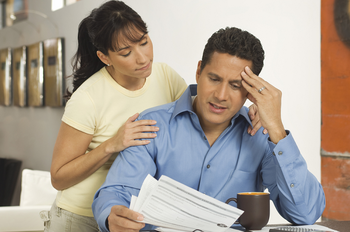One of the greatest things we can learn in life is excellent money management skills. Even if you possess such savvy though, life circumstances may arise that cause extreme financial duress beyond your control. This could be due to unemployment and loss of health benefits, even after years working for the same company. Or perhaps you became ill, injured, or debilitated-again, leading to further lack of income when you couldn’t work. Many factors can play into financial strain. The key is in finding a solution, even when you may feel as if you have hit rock bottom. At a time like that, it can be hard to confide in anyone due to feelings of embarrassment or shame.
With the help of an experienced bankruptcy firm like Levitt & Slafkes, P.C. though, you will not only be able to learn about the differences between Chapter 7 and Chapter 13, you will find out how the process serves as a positive financial planning tool. Many hope to be eligible for Chapter 7 as it allows for discharge of most debts in three to six months (usually excluding debts such as student loans, tax bills, alimony and child support, and more). After that, they are free to move ahead, debt-free for the most part, enjoying any income they make following bankruptcy.
Even if you are eligible for Chapter 7 though, there could be specific issues that make Chapter 13 the better choice. Often, this is because of property or large, non-dischargeable debts that could be rolled into a more long-term repayment plan; for instance, if you have a home going into foreclosure, or a vehicle that you are behind on payments on and it is close to being repossessed, you may be able to pay off the delinquent payments in your Chapter 13 plan. This is usually only feasible if you can also continue to pay the normal monthly payments as well.
If you have other debts that are not dischargeable in a Chapter 7 bankruptcy, but are delinquent and need to be re-paid, you may be able to settle that in Chapter 13 too. Depending on the amount of disposable income you have available, the trustee may stretch non-dischargeable, priority debts out over the three- to five-year period, thus lowering some monthly payments that are in delinquency.
To find out which type of bankruptcy will benefit you more, consult with your bankruptcy attorney. Together you should be able to pinpoint your specific needs and goals and then file accordingly.
Because Levitt & Slafkes, P.C. has already helped thousands of clients through the bankruptcy process, we understand exactly what you are going through, and we are here to answer all your questions. Call us at 973-323-2953, or contact us online to schedule a free consultation.
We are proudly designated as a debt relief agency by an act of Congress.



